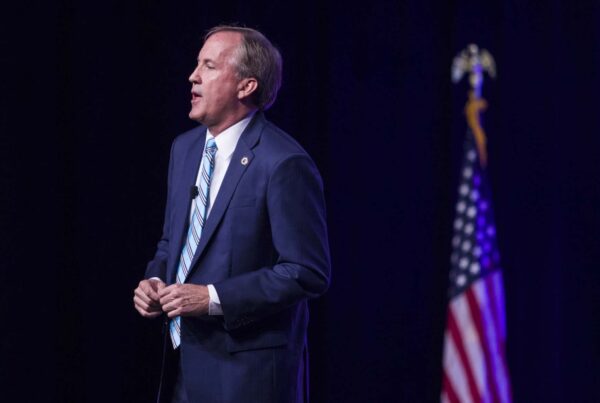From Houston Public Media:
Before 8 a.m. on a Tuesday in early September, a staffer with the Texas Education Agency was on a “cross country parental leave road trip” when an urgent text came in from Kristen Hole, the Chief Academic Officer for Houston ISD.
The teachers’ union had sued the district, temporarily blocking a controversial performance evaluation system for educators — a key pillar of the sweeping reforms from state-appointed superintendent Mike Miles.
Hole texted that the district was “pivoting quickly” to a state-approved evaluation system known as T-TESS. She said the administration wanted “TEA to confirm our approach aligns with (state regulations).”
Over the next few days, the agency and the district traded draft documents and suggestions. Houston Public Media obtained the correspondence and documents through a public records request.
Among the TEA’s suggestions was a warning.
“With training, recommend being clear on how points will be awarded … on the (classroom spot observation),” a TEA staffer wrote. “If not addressed this may lead to calibration issues.”
Put simply, the TEA warned Houston ISD to provide clear guidance and training on how classroom spot observations should be scored. Otherwise, there could be inconsistency in how the district measures the quality of the approximately 11,000 teachers across the more than 270 schools in Houston ISD.
The final draft submitted by the district to the TEA added the word “draft” over the spot observation form.
The agency staffer confirmed in an email “that the Texas Education Agency (TEA) has reviewed this plan and provided feedback regarding (state regulations) and recommended best practices for teacher appraisal and evaluation,” adding that “the feedback has been addressed in the final version … ”
“TEA does not approve district-specific implementation of the T-TESS system but, instead, provides technical assistance and feedback to support local implementation,” the staffer noted.
A few hours later, the TEA-appointed management board for Houston ISD greenlit the new system. The next month, they approved a pay-for-performance system for campus principals with similar components, like student test scores and instructional quality.
According to multiple administrators and educators, the district has not provided clear guidance or adequate training — despite the TEA’s warning.
In case you missed it: Houston ISD reverses course on mid-year principal screenings after community calls to ‘reject this system, reject this superintendent’
Teachers aren’t alone in their confusion. Community members were shocked by the recent news — first reported by the Houston Chronicle — that principals at some of the district’s top-achieving schools were told to improve their performance or risk removal, based on mid-year screenings for campus “instructional quality” and “student achievement.” The district walked back those screeningsafter a late-night board meeting that included hours of angry public comment.
When asked about the TEA’s warning and the widespread confusion at a press conference on Friday, Miles projected confidence.
“We do spot observations better than any district that I know,” he said, pointing to conversations that predated the rollout of the new systems as well as ongoing training sessions. “I think everybody knows what quality of instruction is. And yes, there’s, you know, 274 principals — some of them are not as skilled at it as others — but there’s no question we do quality of instruction very well.”
Houston ISD teacher and union vice president Daniel Santos was less enthusiastic.
“The spot observations are inconsistent,” Santos said. “They are meaningless. They are worthless.”
Teachers in Houston ISD are being observed by administrators more this school year. They’re looking for compliance with a list of “instructional characteristics” for each lesson, like alignment with state academic standards and district-approved student engagement techniques.
Houston Public Media spoke with a current Houston ISD teacher who has been recognized as “teacher of the year.” They requested anonymity due to fear of retaliation.
The teacher said they were eager to adapt to the new superintendent’s expectations, but it was hard to gain clarity on the new system.
“I was getting one set of explanations from one of my admin versus from our executive director versus from a district training we would go to off campus, and I just didn’t know what it would look like in my classroom,” they said.
The teacher said there is more clarity now.
“The clarity is that it’s an unreachable and unsustainable expectation to be able to do everything on the (spot observation) checklist,” the teacher said.
Sean Tellez left the district earlier this month. He served as principal at Love Elementary.
“For the teachers, it was a lot of compliance,” Tellez said. “At the end of the day, it was about getting numbers in — ‘Get spot observations, get spot observations.’ It was quantity over quality, in my opinion, and the same is true of us as principals.”
He said campus leaders received brief presentations but no in-depth training on how to conduct spot observations when the quick pivot to T-TESS happened.
Houston Public Media also interviewed an assistant principal who requested anonymity due to fear of retaliation.
They said district-level supervisors criticized campus administrators for giving teachers high scores on spot observations, especially after the Independent Review Team (IRT) stopped by to screen instructional quality.
“We were told, ‘Bring the scores down because you’re not matching the quality of instruction rating from the IRT,'” they said.
“The disconnect comes from us, the (campus-based) appraisers, we see (the teachers) every day, we coach them every day,” the assistant principal said. “We offer them insight to get better, and our scores might be a little bit higher.”
The tendency for campus administrators to inflate teacher evaluation scores is something Miles has criticized.
When Houston Public Media first reported on his pay-for-performance plans in July, Miles said the “target distribution” would help. It forces a certain percentage of staffers into each performance bracket, including 3% of teachers and 10% of principals facing automatic removal each year.
“What we have in education today is a situation where almost 97% of all teachers in America are ‘proficient,’” he said. “We know that’s not actually the case.”
According to Duncan Klussman with the University of Houston’s College of Education, Miles has done a good job of conveying his general expectations and philosophy — but he’s faltered in the rushed implementation of his reforms.
“They’re trying to implement a massive amount of innovation and changes within the system — some that are very critical and important to do because it needed an improvement — but you also have to structure it in a way that you can be effective in that rollout,” Klussman said. “I think part of the struggle right now is there are times where they’re moving too fast to where they cannot effectively roll out these different initiatives that they need to put in place within the system.”

















